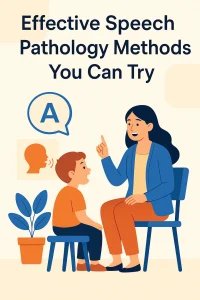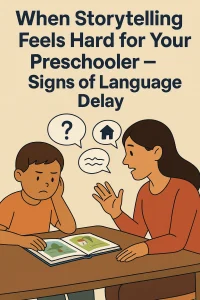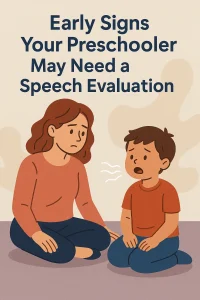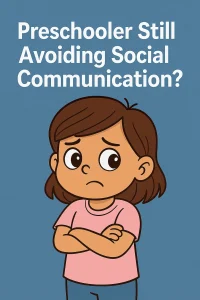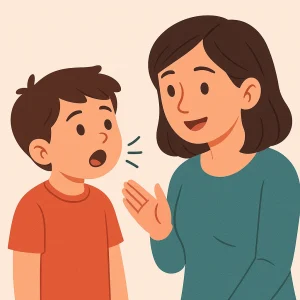Down Syndrome: Types, Signs & Support for Families
By Wellness Hub
Last Updated: October 21, 2023
Down Syndrome is a genetic disorder developed due to an extra chromosome or an extra piece of chromosome. Individuals with this syndrome face both mental and physical challenges. When abnormal cell division causes an extra copy of chromosome 21, either full or partial, it results in Down syndrome. This extra chromosome leads to developmental delays, intellectual disabilities, and distinctive physical features. It is one of the most common genetic conditions and occurs in approximately 1 in 700 live births.
Each person with Down syndrome is an individual with intellectual and developmental problems, maybe mild, moderate, or severe. People with Down syndrome, either children or adults, have distinct features. Some people are healthy, while others have significant health problems.
What is “Down syndrome” or “Trisomy 21”?
Genes are the basic units of heredity and play a fundamental role in the transmission of traits from one generation to the next. They are segments of DNA (deoxyribonucleic acid) found in the chromosomes within the nucleus of cells. These chromosomes determine how the baby’s body forms and functions, even from the time of pregnancy. There are a total of 23 pairs of chromosomes in each cell. In some rare cases, there can be an extra copy of one of the pairs of chromosomes. Such a condition is termed “Trisomy”. The presence of an extra copy of chromosome 21 in each cell leads to the condition called “Down Syndrome” or “Trisomy 21”. Trisomy 21 is the most common form, accounting for about 95% of cases. However, there are two other less common types of Down syndrome, which are as follows:
Types of Down syndrome

Typically, humans have 46 chromosomes in each cell, with 23 inherited from each parent. In Down syndrome, there is an extra copy of chromosome 21, resulting in a total of 47 chromosomes. The parents of the affected child are usually genetically normal. Neither any behavioral activity nor environmental conditions are found to have a role in influencing the probability of its occurrence. The researchers are still working to find out the reasons.
The studies show that there is an increased risk of Trisomy 21 with advanced maternal age. Down syndrome could be a predisposition to Alzheimer’s disease.
Read more about on Einstein Syndrome and Speech Delays: How Therapy Helps
Signs and Symptoms of Down syndrome
There are certain features that can help to identify an individual with Down syndrome. These signs and symptoms might be similar or might vary from individual to individual.
- Small head
- Short neck
- Short face
- Short figure
- Epicanthal folds
- Poor muscle tone
- Midface Dysplasia
- Hyperflexible joints
- Generalized Hypotonia
- Eyelids that slant upwards
- Small ears with an unusual shape
- Narrow and high-arched palate
- Short neck with excess skin on the back of it
- Shortened oral and pharyngeal structures
- Cardiac malformations in about 40% of cases
- Relatively short fingers and small hands and feet
- Flattened face, especially at the bridge of the nose
- Short front-to-back cephalic dimension (Brachycephaly)Broad and short hands with a single crease in the palm
- The relatively large, fissured tongue which tends to protrude
- Tiny white spots on the colored part of the iris of the eye are called Brushfield’s spots.
Problems faced with Down syndrome
An individual with Down syndrome can face many health issues and concerns that can be potential threats.
Physical health Issues:
Individuals with Down syndrome are at an increased risk of certain medical conditions. These include
- Congenital heart defects
- Hearing problems
- Vision issues
- Cataracts
- Thyroid disorders
- Seizure disorders
- Gastrointestinal disorders
It is necessary to conduct regular medical check-ups to address these potential health concerns. The physical health of these individuals is prone to illness with less immunity.
Speech and Language Delays
Just like some neuro-divergent individuals, the ones with Down syndrome can have delays in their speech and language development. Conductive hearing loss, in many cases, and sensory neural hearing loss, in some cases, are observed in individuals with Down syndrome. Speech issues such as Deficient syntactic and morphologic features are found. However, they have relatively better vocabulary. Hypernasality and nasal emission are observed during speech. They might also exhibit Breathier voice and Articulation disorders. Because of all these, their learning becomes slow, which can result in learning disorders for them. Early intervention services, along with speech therapy, can help them improve their communication skills.
Intellectual disabilities:
Individuals with Down syndrome have mild to moderate cognitive impairment. They have delayed language. Both their long-term and short-term memory is affected.
Social and Behavioral Traits
There can be some behavioral issues in social situations faced by individuals with Down syndrome. Though many individuals with Down syndrome are sociable and enjoy interacting with others, they may face challenges in social situations. These individuals might exhibit certain behavioral traits, such as impulsivity or attention difficulties.
Developmental issues
Infants with Down syndrome may be average in size, but typically, they grow slowly and remain shorter than other children of their age.
Lifespan
Advances in medical care and early intervention have significantly improved the life expectancy of individuals with Down syndrome. Many people with Down syndrome now live into their 60s and 70s.
Diagnosis and Tests
Healthcare providers can check for Down syndrome during pregnancy or after childbirth. There are two types of tests for Down syndrome during pregnancy.
Screening test
A Screening test can indicate the likelihood or chances that a mother is carrying a baby with Down syndrome. However, these tests cannot diagnose the baby with Down syndrome.
Diagnostic tests can identify.
Maternal blood chromosomal testing can be used to make a diagnosis. A pregnant woman who is at risk of having a child with Down syndrome can also have a chromosomal test performed on her blood. A mother’s blood contains fetal DNA, which may contain extra chromosome 21 material. Usually, a more invasive test would confirm the blood test.
Diagnosis of Down syndrome after birth
It is often based initially on physical signs, but as these can be common in many other neuro-typical individuals, the diagnosis can be made by collecting a sample of the baby’s blood and analyzing the number of chromosomes.
Prognosis
- Varies with the severity and complexity of symptom expression
- More favorable in cases of less severe mental retardation and early, comprehensive medical and educational intervention
Support is important
It is important to note that individuals with Down syndrome are unique and diverse, and their abilities and challenges can vary widely. Early intervention services, educational programs, and a supportive environment can greatly enhance their quality of life and help them achieve their potential.
Society has become more inclusive and accepting of individuals with Down syndrome, and there are numerous advocacy organizations and support networks dedicated to improving the lives of those with this condition and promoting their inclusion in all aspects of society. Additionally, consider exploring the benefits of our Wellness Hub, which offers online speech therapy services to further support individuals on their unique journeys.
Frequently Asked Question
1. What is Down Syndrome?
Down Syndrome, also known as trisomy 21, is a genetic disorder caused by the presence of an extra chromosome 21. It affects physical and cognitive development.
2. What are the common symptoms of Down Syndrome?
Common symptoms of Down Syndrome include developmental delays, intellectual disabilities, distinct facial features, and potential health issues such as heart defects.
3. How is Down Syndrome diagnosed?
Down Syndrome can be diagnosed prenatally through screening tests like nuchal translucency ultrasound and diagnostic tests such as amniocentesis or chorionic villus sampling (CVS).
4. What are the causes of Down Syndrome?
Down Syndrome is caused by a random error in cell division that results in an extra copy of chromosome 21. The exact cause of this genetic anomaly is not known.
5. What are the treatment options for Down Syndrome?
While there is no cure for Down Syndrome, early intervention programs, special education, speech therapy, occupational therapy, and physical therapy can help individuals develop their full potential.
6. Can people with Down Syndrome lead normal lives?
Yes, many people with Down Syndrome lead fulfilling lives with proper support. They can attend school, work, and participate in social and recreational activities.
7. How can early intervention help children with Down Syndrome?
Early intervention services can significantly improve developmental outcomes for children with Down Syndrome by providing specialized support and therapies from a young age.
8. What health issues are commonly associated with Down Syndrome?
Individuals with Down Syndrome may have an increased risk of certain health issues, including congenital heart defects, respiratory problems, hearing loss, and thyroid conditions.
9. How can families support a child with Down Syndrome?
Families can support a child with Down Syndrome by seeking early intervention services, creating a supportive and inclusive home environment, and advocating for their educational and healthcare needs.
10. Are there support groups for families of individuals with Down Syndrome?
Yes, many organizations and support groups are available to provide resources, information, and community support for families of individuals with Down Syndrome. Examples include the National Down Syndrome Society (NDSS) and the Down Syndrome Association.
About the Author:
Rajini Darugupally
M.Sc., Speech-Language Pathologist (9+ years of experience)
Rajini is a passionate and dedicated Speech-Language Pathologist with over 9+ years of experience, specializing in both developmental speech and language disorders in children and rehabilitation in adults. Driven by a desire to empower each individual to find their voice, Rajini brings a wealth of experience and a warm, genuine approach to therapy.
Currently, at Wellness Hub, she thrives in a team environment that values innovation, compassion, and achieving results for their clients.
Connect with Rajini to learn more about how she can help you or your loved one find their voice.
Book your Free Consultation Today
Parent/Caregiver Info:
Client’s Details:
* Error Message




